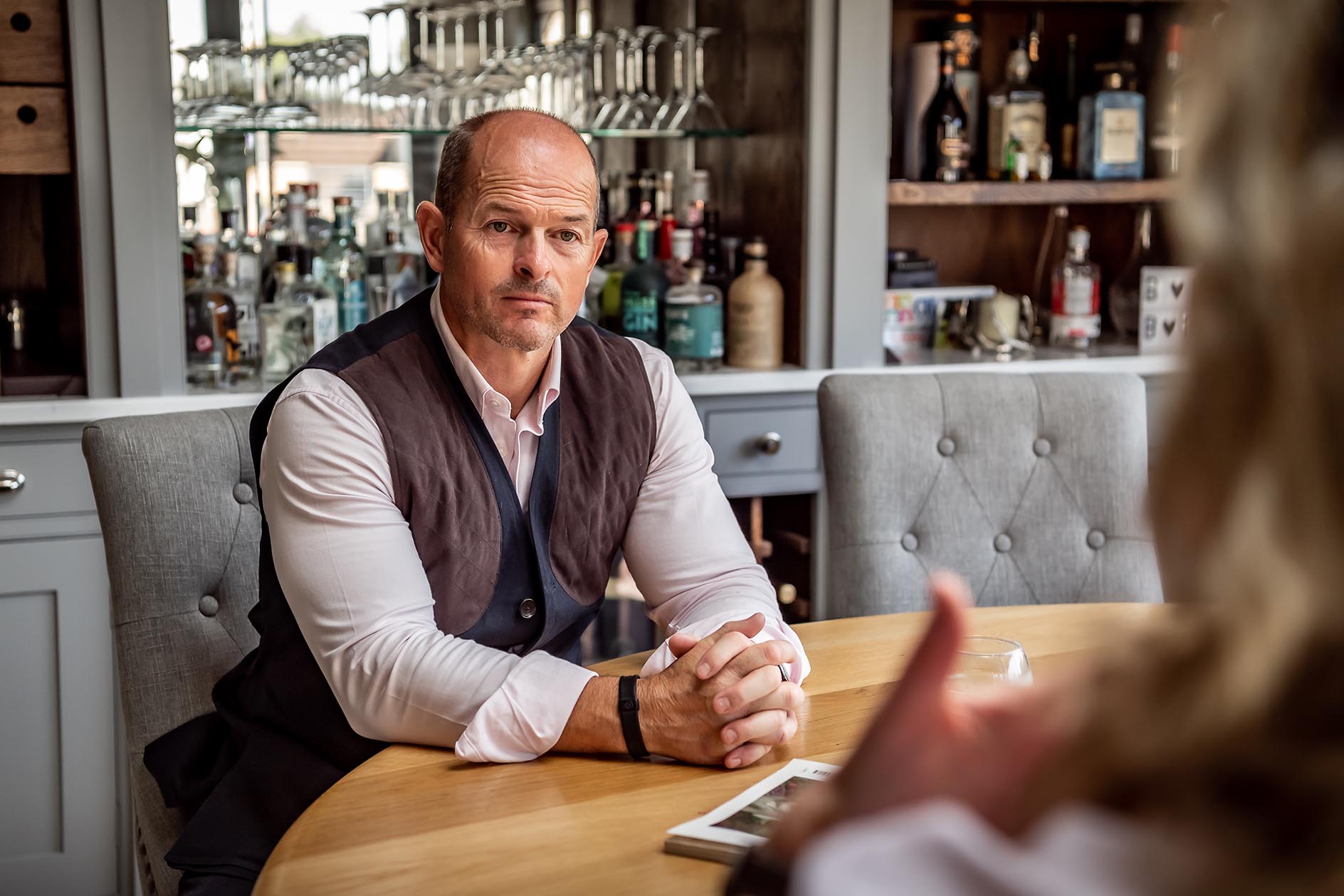Ben Randall: Why your dog behaves for some people, but not others
Award-winning dog trainer Ben Randall shares his advice with Country Life readers on one of the most common questions he gets asked.


Exquisite houses, the beauty of Nature, and how to get the most from your life, straight to your inbox.
You are now subscribed
Your newsletter sign-up was successful
Ben Randall is one of Britain's top dog trainers, and since 2022 has been sharing advice with — you can see the archive of his columns here.
After a break at the start of 2025 he's back, sharing his experiences of training and looking after dogs from his base in Herefordshire.
If you've got a question for Ben, please email paws-for-thought@futurenet.com.
One of the questions I get asked the most is this: why is my dog behaving for you, but not for me?
As many of you know, we run a luxury boarding kennel in Herefordshire, and we have between 20 and 50 dogs checking in with us every day. As you can imagine, through that alone we see all sorts of behaviours, all types of dog.
I also teach dog training across the world, seeing different methods, approaches and types of dog. As you can imagine, it gives me a great insight into what works and doesn’t when it comes to getting a dog to behave.
Here’s how it usually happens. I see an owner arriving with his or her dog, being pulled down the driveway on its lead. The dog is usually, jumping up and down, barking, and can’t wait to come in to our kennels.
Exquisite houses, the beauty of Nature, and how to get the most from your life, straight to your inbox.
Then I come along, take the dog’s lead from the owner, grab its bedding with my other hand, and the dog immediately calms down and relaxes. The dog will show me more restraint and respect than it does the owner.
'Many owners shout and shout to tell their pets off but to the dog it becomes white noise. He gets told off but carries on playing up'
So what’s going on here?
Think back to your school days. I’ll bet you can think of two teachers from back in the day — one who’d let you get away with anything, and another who’d let you get away with nothing. For me the latter was a rugby teacher, who won my respect and made a huge impression on me, so much so that we’re still in touch nearly 50 years later.
The first teacher shouted, threatened, did nothing. My rugby teacher was the opposite. He never shouted, never threatened, but we immediately knew where we stood if we played up.
Think about that in the context of how you talk to your dog. Many owners shout and shout to tell their pets off but always without sanctions. To the dog it becomes white noise: he gets told off but carries on playing up, running around, jumping on people. There’s no mutual respect — just a dog doing whatever it likes while it tunes out a noisy owner.
With me, the dog instantly understands that (a) I’m a trainer, like my rugby coach; and (b) that there are boundaries he must respect; but also (c) that he can trust me, and I’ll feed and look after him, but that we must have mutual respect.
It’s something that works even with the naughtiest dog, as I saw with something that happened this morning. I’ve been helping an owner to train a cocker spaniel, and at home, on all his videos, he has been well behaved. But today, with another dog around, the cocker was jumping up on his owner, spinning around – and the owner kept repeating ‘leave’ and ‘sit’ till he was red in the face. The dog did nothing for him.

I asked if I could take him, and the cocker jumped on me immediately — but one firm, assertive command of ‘sit’ and he behaved straight away. It carried on in this vein — I was restrained, calm, and the dog was as good as gold.
It was a great way of showing the owner the importance of staying calm. Less is more. Don’t keep bellowing, develop better understanding. The better you do this, the better it’ll go.
So what did I tell my client? I asked him to go away and be far more consistent in his commands. Make ONE verbal command – not to be repeated and not shouted. Reinforce it with a reward — not bribery. The latter means giving a treat for every action, while the former means giving the dog something nice — and it could be a toy, a treat, praise, a game, whatever works — after a sustained period of good behaviour.
If you carry on shouting ‘sit’ 10 times to get your dog to sit, you’re training your dog to need to be told ‘sit’ 10 times before he’ll cooperate. And that’s no good for either of you.
For more detailed advice about Ben Randall’s positive, reward-based and proven BG training methods, one-to-one training sessions, residential training or five-star dog-boarding at his BGHQ in Herefordshire, telephone 01531 670960 or visit www.ledburylodgekennels.co.uk.
For a free seven-day trial of the Gundog app, which costs £24.99 a month or £249.99 a year, visit www.gundog.app/trial
Ben also has a book, ‘How to Train Your Gundog’, out now. You can order it here for £40.
